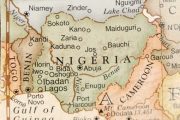
With the banks starved for currency, it is rationed by government mandate. Residents must arise in the middle of the night to obtain a number from bank security guards, giving the holders the privilege of standing in line for hours the next day to withdraw a paltry amount of money, perhaps the equivalent of one or two U.S. dollars.
The Zimbabwean economy is in a state of complete meltdown — the natural consequence of 28 years of rule by the tyrannical Robert Mugabe — producing inflation rates not seen since Germany in the 1920s, Greece and Hungary in the 1940s, and Yugoslavia in 1993. The nation’s annual inflation rate has risen from 1,000 percent in 2006, to 12,000 percent in 2007, to an immeasurable figure this year. In August, the government devalued the currency by chopping off 10 zeros. Had they not done so, the conversion rate would now be 10 trillion Zimbabwean dollars to one U.S. dollar.
Those who have studied historic examples of hyperinflation can recite extreme stories, such as factory workers being paid daily in 1920s Germany, so their wives could meet them at the factory gates and bring their cash directly to stores before it lost most of its value. The situation in present-day Zimbabwe exceeds even those dark days. Essential services have begun to stop because the workers at schools, hospitals, and public sanitation facilities cannot afford to go to work — the cost of bus fare exceeds their daily wages. The few who show up for work must supplement that pay through their own enterprise, such as teachers selling snacks to their students. In some areas, the barter system has replaced currency.
Stanford Mafumera, a security guard who was interviewed while waiting in line to obtain currency from a Zimbabwean bank, told the Times reporter that his government’s land-reform program was responsible for Zimbabwe’s economic destruction. As the report summarized Mafumera’s explanation: Mugabe’s regime had “chased away the white commercial farmers who had made the country a breadbasket … as well as donors from Britain and other European countries and the United States who sustained Zimbabwe’s starving millions for years.”
“A lot of people got farms, but they can’t produce anything and this is what is causing the poverty and hunger,” said Mafumera. “There’s no food.”
During a news conference in Washington in October 1985, former Rhodesian Prime Minister Ian Smith (the last leader of Rhodesia, the nation that had preceded Zimbabwe) said that he had come as the leader of the Zimbabwe Conservative Alliance Party to ask Western nations to help arrest his country’s slide into a “Marxist-Leninist-Communist” state. “I believe it is right for me to urge the leaders of the free world to use their influence to try and ensure that we don’t drift into chaos, into bankruptcy and into a situation where there is no freedom,” Smith told reporters at the time, in words that seem prophetic today.
— AP Images




